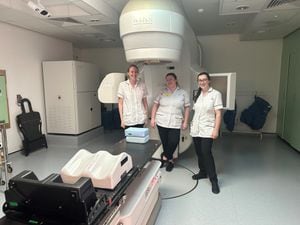Thousands of patients across Shropshire repeatedly prescribed 'highly addictive drugs' for at least a year
Thousands of people in Shropshire, Telford & Wrekin have been repeatedly prescribed pain medication and anti-depressants for at least a year, new figures show.

Public Health England has, for the first time ever, released the results of a prescribed medicines review which highlights the dependence on and withdrawal from prescribed drugs across the country.
UK Addiction Treatment Group (UKAT), which runs treatment centres to help those with addictive disorders, has expressed concerns that a large number of people have been repeatedly prescribed the 'highly addictive drugs' for at least 12 months, and for some, perhaps even longer.
Figures show in the areas covered by Shropshire and Telford & Wrekin Clinical Commissioning Groups, more than 41,000 people had received prescriptions for anti-depressants in March 2018 – nearly half had been on the medication for at least a year.
Opiate prescription pain medicines were prescribed for 23,472 patients in the region during March last year, with more than 11,700 patients receiving prescriptions for at least 12 months beforehand.
More than 14,900 people were also in receipt of prescriptions for gabapentinoids, benzodiazepines, and Z-drugs in March 2018, with about half having had prescriptions for the drugs for at least a year.
Serious
Gabapentinoids are generally prescribed for epilepsy neuropathic pain.
Benzodiazepines are used to treat anxiety and panic disorders, while Z-drugs are generally prescribed for sleep disorders.
UKAT has welcomed Public Health England’s review and the group says it hopes that it will serve as a ‘serious wake up call’.
Nuno Albuquerque, group treatment lead at UKAT, said: "This report shows us that thousands of people living across the West Midlands are crying out for help, and unfortunately, they’re being given plasters in the form of pills to solve their problems.
"There is no doubt that in the short-term, these drugs may help, but long-term use of these drugs, for the majority, will be ineffective because over time, the patient is likely to develop physical and psychological tolerance to the drug.
"These figures suggest to me that GPs here are stretched and overwhelmed and need better support and investment to be able to offer alternative treatment therapies like pain clinics, talking therapy, yoga, exercise, diet, and acupuncture to better tackle the root cause of their patients problems, instead of simply issuing a repeat prescription."
For more information and support on prescription drug addiction, visit bit.ly/2lDJ3Aa





